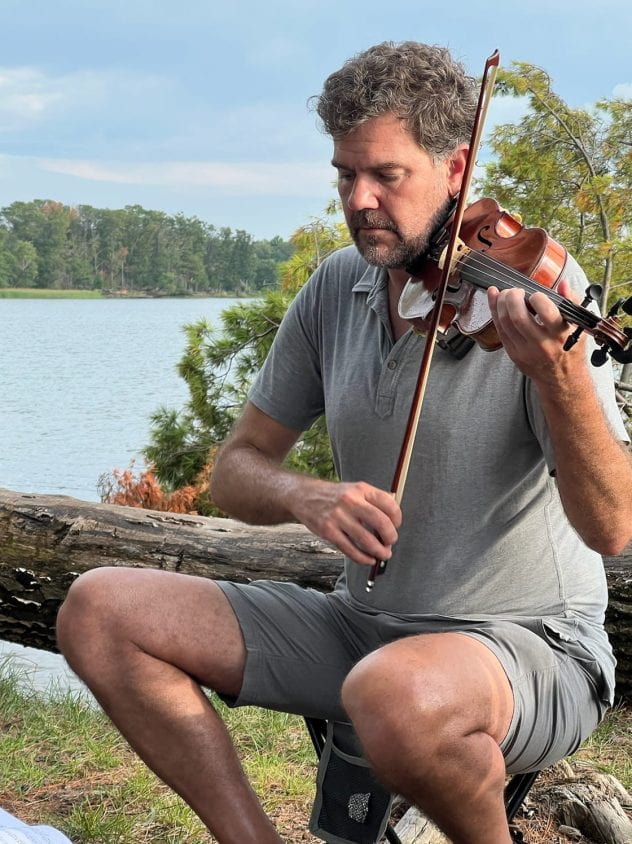Steve Jacobsen is a mineralogist doing physical chemistry at high pressure. The way earth and planetary materials behave under extreme conditions can address challenging questions about the Earth’s interior structure, composition, and processes, especially when combined with geophysical observations. Static and dynamic high-pressure also creates novel synthesis routes for new materials and chemistry with sometimes remarkable properties. Working on materials in extreme environments also has important applications in high-energy-density physics. The future low-carbon economy depends not only on minerals but also on our ability to utilize them in sustainable ways.
 Jacobsen received his B.A. in geology and Ph.D. in geophysics from the University of Colorado at Boulder. Prior to joining Northwestern, he was an Alexander von Humboldt Postdoctoral Fellow at Bayerisches Geoinstitut in Bayreuth, Germany, and the Barbara McClintock Postdoctoral Fellow at the Earth and Planets Laboratory of the Carnegie Institution for Science in in Washington DC.
Jacobsen received his B.A. in geology and Ph.D. in geophysics from the University of Colorado at Boulder. Prior to joining Northwestern, he was an Alexander von Humboldt Postdoctoral Fellow at Bayerisches Geoinstitut in Bayreuth, Germany, and the Barbara McClintock Postdoctoral Fellow at the Earth and Planets Laboratory of the Carnegie Institution for Science in in Washington DC.
Jacobsen is interested in the role of volatiles, especially water and carbon, in controlling geophysical processes driving the co-evolution of Earth’s crust, mantle, and atmosphere. He developed an ultrasonic technique for the diamond-anvil cell, known as GHz-ultrasonic interferometry, which is used to measure sound velocities in materials under static compression. His experimental laboratory also features facilities for high-pressure Raman, UV-VIS absorption, and FTIR spectroscopy. In chemistry and materials science, he works on synthesis and properties of hydrogen-rich materials, superhard materials such as B-C-N phases rivaling diamond in hardness, novel intermetallics, and pressure-induced electronic transitions with various applications in mineralogy, geoscience and nanotechnology.
Jacobsen is active in research and development at DOE National Laboratories, especially the Advanced Photon Source at Argonne National Laboratory, the National Synchrotron Light Source-II at Brookhaven National Laboratory, and pulsed-power facilities at Sandia National Laboratories.
He served as Distinguished Lecturer of the Mineralogical Society of America (2007) and received a Distinguished Teaching Award from Northwestern University in 2013. He received a Presidential Early Career Award for Science and Engineering (PECASE) in 2008, a David and Lucile Packard Fellowship for Science and Engineering (2008), and a Friedrich Wilhelm Bessel Award from the Alexander von Humboldt Foundation in 2014. At Northwestern, Jacobsen served on the Administrative Board of The Graduate School from 2012-2014 and he was Associate Head of the Public Affairs Residential College from 2009-2014. He served on the Education, Outreach, and Infrastructure Development Committee of NSF-COMPRES from 2008-2014, and the COMPRES Executive Committee 2015-2018. From 2015-2020, Jacobsen served on the Committee on Solid Earth Geophysics at the National Academy of Sciences, Engineering, and Medicine (NASEM), and from 2018-2020 he was a member of the NASEM Committee on Catalyzing Opportunities for Research in the Earth Sciences (CORES): A Decadal Survey for NSF’s Division of Earth Sciences, which produced the report Earth in Time. Since 2018, Jacobsen has been Editor at Geophysical Research Letters.